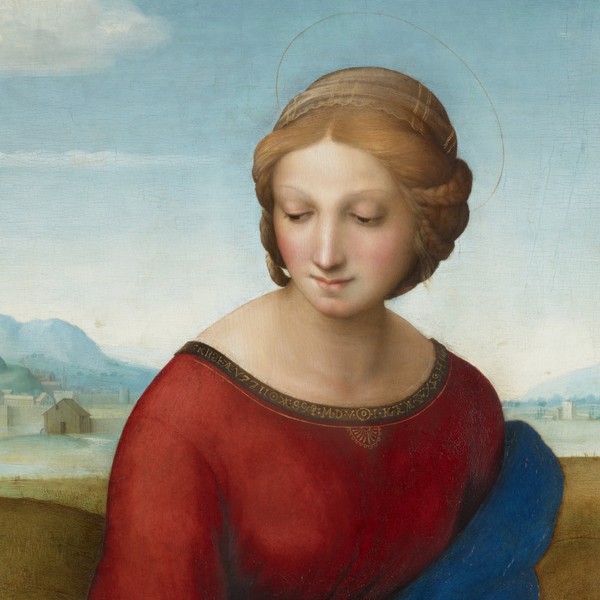
Some time ago, we listened to a Lied that Franz Schubert composed upon a poem by Friedrich von Hardenberg, Novalis, a poem that starts with the verse "Ich sehe dich in tausend Bildern".Back then, I told you that it was not easy to establish if the Lied, known as Geistliches Lied or Maria, was a sacred or a secular song..
The background of the poem is somewhat unclear. Novalis had written the poem, which was posthumously published within his Geistliche Lieder, with the image of Sophie von Kühn in mind; Sophie had been his fiancée, died almost a child, and the poet felt a mystical connection to her. Beyond this identification, it appears that Novalis wanted these poems to be sung as hymns in the church. He wanted them to contribute to deepening the faith of the parishioner, a faith somehow renewed by Romanticism, of which he was, so to speak, a founding member.
Max Reger, whom we presented on Liederabend a few months ago, wrote a religious hymn with this poem. It was the summer of 1907 and the composer was spending some months at his summer residence in Kolberg, a Baltic-bathed city popular at the time for its spas (today, Kołobrzeg, Poland). The kapellmeister of the cathedral, Walther Eichberger, asked him to write some hymns that his wife Martha could sing during the services. That's the story behind the Zwei geistliche Lieder, Op. 105, the first of which set into music that poem by Novalis that Schubert had also musicalized ninety years earlier.
The composer premiered this beautiful hymn, Ich sehe dich in tausend Bildern [In countless pictures I behold thee], that summer, on 27 August, accompanying Martha on the organ. He later published it with three different accompaniments: organ, harmonium and piano. We will listen to the song in the organ version, and I would say this is the first time we heard this instrument here. The performers will be soprano Eugénie Lefebvre and organist Louis-Noël Bestion de Camboulas.
Ich sehe dich in tausend Bildern,
Maria, lieblich ausgedrückt,
Doch keins von allen kann dich schildern,
Wie meine Seele dich erblickt.
Ich weiss nur, dass der Welt Getümmel
Seitdem mir wie ein Traum verweht
Und ein unnennbar süsser Himmel
Mir ewig im Gemüte steht.
In countless pictures I behold thee,
O Mary, lovelily expressed,
But of them all none can unfold thee
As I have seen thee in my breast!
I only know the world's loud splendour
Since then is like a dream o'erblown;
And that a heaven, for words too tender,
My quieted spirit fills alone.
(translation by George MacDonall)













